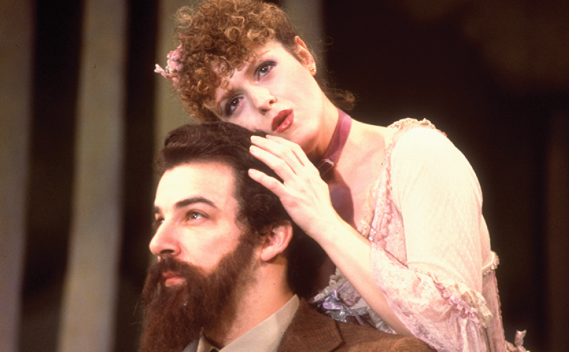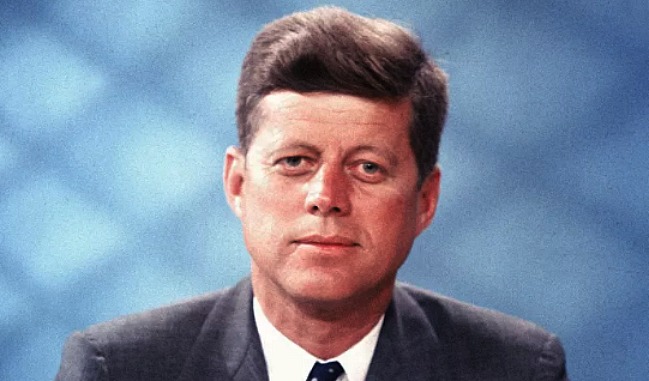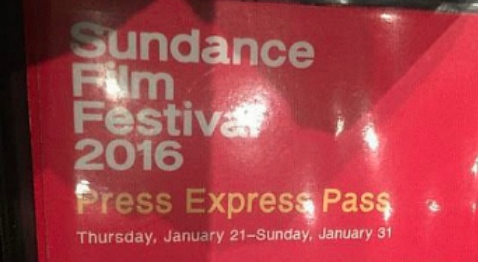Spencer Marshall
A recollection about the late Penny Marshall, posted on Facebook by director-screenwriter Alan Spencer — 12.18, 9:39 pm:
“Penny Marshall was authentic. What you saw is what you got. When we first met I was a young writer on the Paramount lot and she was a huge star, but didn’t act like one. She was humble.
“Penny was a master of physical comedy. I marveled at an episode of Laverne & Shirley where she played a nurse struggling to change a bed with a corpulent patient in it. She tugged on a sheet that wouldn’t budge, slid all the way under the bed and halfway across the floor. Penny executed this gag with the skill of Chaplin.
“Penny choreographed much of her slapstick on the show, often telling the writers to simply create a predicament and she’d do the rest. This inventiveness was an early indicator of directing prowess.
“Penny was frank. When she saw an old friend who’d put on a dangerous amount of weight, she drolly asked in that inimitable voice whether he’d ‘heard of something called a salad?‘ Another time, when an A-list actor approached her at a party, asking why he’d never been cast in her films, Penny said ‘because I hear you don’t know your lines or show up on time.’ The star left slack-jawed.
“Penny was a tough lady who knew how to take care of herself, but also took care of others — family, friends, coworkers. She was charitable, but never publicized her good deeds. After 9/11, she gave a lot of time and money towards rebuilding as well as first responders. And unlike other celebrities, Penny was able to move through tough areas of town. This street cred was proven by gang members who called out ‘Laverne’ whenever she walked past. She was a working-class hero.
“Penny smoked like a chimney. You could smoke meats in her living room. Nonsmoking laws didn’t apply to her as she’d light up in restaurants and nobody dared stop her.
“Penny had one of the first boxes of Krispy Kreme donuts upon their arrival in California. She had all the best pizza parlors on speed dial and never lost an eBay auction for a Beanie Baby. She was fun and unpretentious.
Musicals By Any Rhyme or Reason
I was so taken the other night by Springsteen on Broadway, which I regard as a piece of one-man musical portraiture, that I thought I’d assemble a roster of my 25 all-time favorite musicals. How am I defining a musical? Any presentation of any kind (filmed narrative musical, stage musical live or captured on film/video, filmed concert) in which a minimum of five or six musical numbers are performed, for any reason or within any scheme.
2. John Carney‘s Once
3. Lars von Trier‘s Dancer in the Dark
4. Sunday in the Park with George (1999 taping of B’way stage musical)
5. Damien Chazelle‘s La La Land
6. Richard Lester‘s A Hard Day’s Night
7. Alex Gibney‘s Mr. Dynamite: The Rise of James Brown
7. Alfred and David Maysles‘ Gimme Shelter
8. D.A. Pennebaker‘s Monterey Pop
9. Carousel (Live From Lincoln Center)
10. Michael Wadleigh‘s Woodstock
Photogenic Values
Yesterday I posted a riff about how Joe Biden‘s 2020 Presidential campaign will probably turn out better if he acquires a Clint Eastwood jawline. Right away some commenters started calling me shallow and whatnot, essentially declaring that attractive appearances don’t matter in politics.
One question: Imagine if during the 1960 Presidential election John F. Kennedy didn’t have his thick, wavy, reddish-brown hair but a thinning Biden-like thatch. Not to mention a pasty-faced complexion instead of his regular Florida tan. Plus a bulky, pot-bellied, Tip O’Neil physique due to a thing he had for ice cream, cheesecake, pasta and Pabst Blue Ribbon. Would his appearance have made any difference in the polling? Would he have still edged aside Richard M. Nixon?
See what I mean?

Oh My God…
Men in Black International (aka MIB Paychecks) is “an upcoming American science-fiction action comedy film directed by F. Gary Gray and written by Art Marcum and Matt Holloway. Chris Hemsworth, Tessa Thompson, Liam Neeson, Kumail Nanjiani, Rafe Spall, Rebecca Ferguson and Emma Thompson” — Wiki boilerplate.
Sundance Trump vs. HE Acosta
At the risk of boring the regulars, HE’s legendary Sundance disenfranchisement has happened in two stages. Two years ago Sundance decided to withhold the Press Express Pass they had very generously allowed me to use for five years straight (Jan. ‘12 to Jan. ‘16) and demote me to grunt status. I was also given a grunt press pass last year.
And then a few weeks ago they zotzed me altogether out of press-pass accreditation. For the first time since 1993 (or was it ‘94?) I’ll be A Man Without A Sundance Press Pass.
I’m re-stating this to officially announce that I’ll be attending anyway and catching what I can through the good graces of publicist and producer pallies.
At least I’m good with the Slamdance gang and will be able to catch Steven Soderbergh‘s High Flying Bird, among other Slamdance attractions.
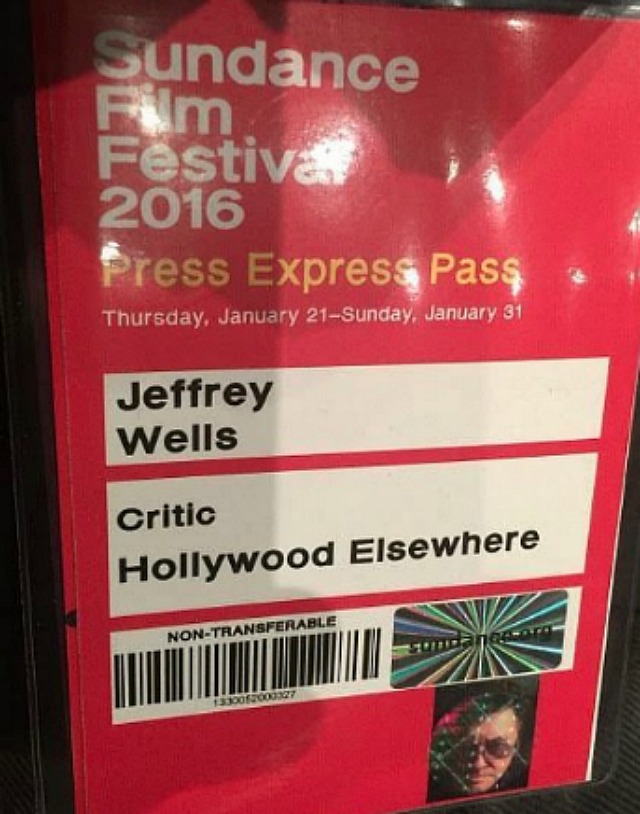
I trust we’re all in favor of an egalitarian press-pass approval process. Like Toronto began to do in earnest last September, Sundance is trying to spread press-pass access evenly and liberally, giving passes to younger critics, POC critics, woman critics, gay and trans critics…generally lowering barriers, opening the doors and trying to breathe with the times.
In line with this, I was informed last night that a certain midwest blogger who’s never been to Park City before is not only good for a Sundance ‘19 press pass but approved for an Press Express Pass — i.e., the kind of pass that for years has been de rigueur for Owen Gleiberman, Todd McCarthy, Eric Kohn, Anne Thompson, Kyle Buchanan and others at the top of the heap, given their general prominence and years of shrewd, diligent reviewing, industry assessments and backing from major print or web publications.
What does this tell us about where Sundance is at this year? Blowing me off entirely after attending and reporting on Sundance festivals for 25 years and yet giving a novice first-timer a coveted Press Express Pass? This is what a “woke” festival walks and talks like in The Year of Our Lord 2019.
An egalitarian festival, it seems, should really try to be an egalitarian festival. There should be room at the inn not just for hard-working and impassioned midwest critics but also, in a fair-minded, even-handed world, for hard-working, strongly opinionated, less than fully “woke” columnists like myself.
I’m just glad, given the cultural currents of our times, that the good people behind the Toronto, Cannes, Telluride, Berlin, New York, Slamdance and many other festivals subscribe to a different attitude and philosophy.
The Fire Next Time
“I know I’ve been accused of being heavy-handed and whatnot, but the world we’re living in today is not the time to be subtle. It’s not the time. It’s my opinion that this upcoming [election]…two years is gonna go like that, two years is around the corner, two years is tomorrow…this upcoming Presidential election in two years is [gonna be] a battle for the soul of America…that’s what it’s gonna come down yo…it’s gonna be a battle for the soul and direction of the United States of America….I’m convinced of that…it’s gonna be a holy war, love against hate…Radio Raheem…Robert Mitchum with those tattoos on his fingers and Radio Raheem wearing those rings.” — Spike Lee speaking two weeks ago in an Indiewire Toolkit Podcast. Here’s the mp3.
By the way: There’s nothing especially eye-poppy about Chayse Irvin‘s cinematography for BlacKkKlansman. It’s mostly a straight-ahead, dialogue-driven drama that mostly happens indoors. Which makes me wonder why Universal decided to offer it in 4K Ultra HD (in addition to regular Bluray and high-def streaming). It wasn’t that long ago that 4K was exclusively set aside for CG spectacle stuff.
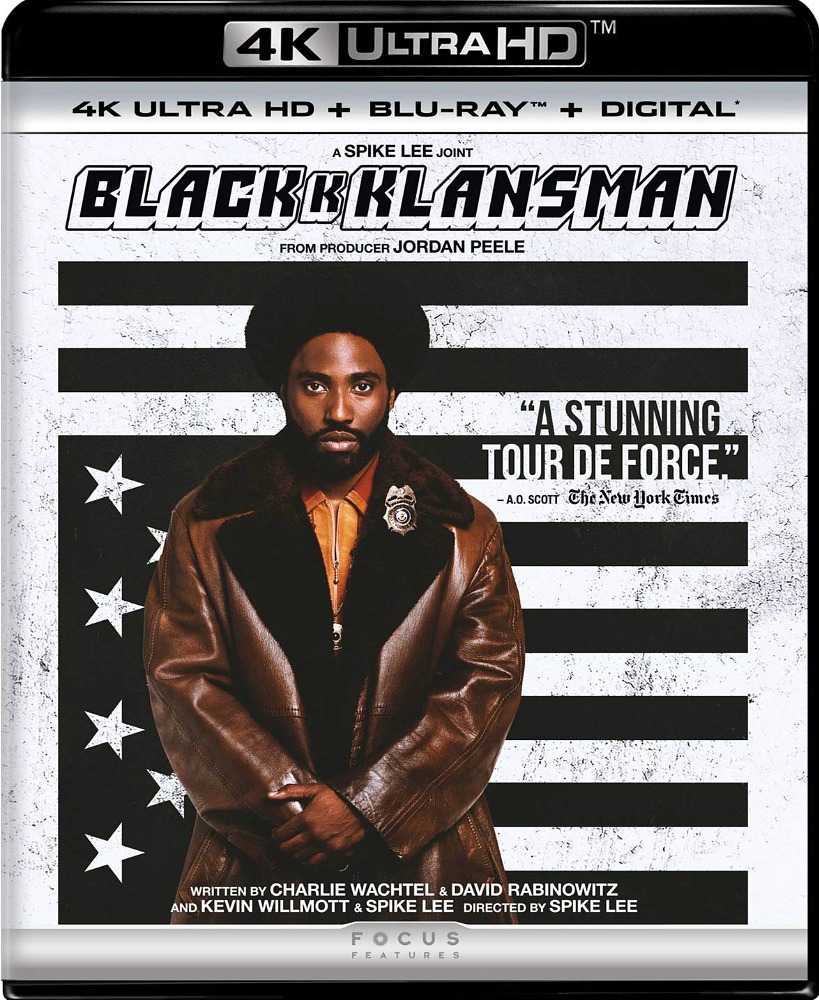
No Good Deed, Psycho Stalker, etc.
If you’re running a lost-briefcase-in-the-subway scam that allows you to meet and glom onto naive Good Samaritans, why would you store all your briefcases in an easily accessible, main-floor cabinet that any visitor could accidentally open, and thereby discover your game?
Trump vs. Riled Righties
Yesterday rightwing author and columnist Ann Coulter posted an essay, “GUTLESS PRESIDENT IN WALL-LESS COUNTRY“, that called Donald Trump a fraud for walking back his government shutdown threat over the mythical Mexican wall, and claimed that “what he’s doing now absolutely guarantees that the next president will be a Democrat and, given today’s Democratic Party, that president will be Kamala Harris.”
Between this and yesterday’s conservative pushback over his decision to withdraw U.S. troops from Syria, Trump is now grappling with serious criticism if not the beginnings of revolt from righties, which will alter the 2020 narrative if it continues.
Coulter excerpts: “On the basis of his self-interest alone, [Trump] must know that if he doesn’t build the wall, he has zero chance of being re-elected and a 100 percent chance of being utterly humiliated.
“But when Trump is alone with Ivanka, they seem to agree that the wall has nothing to do with it. The people just love him for who he is! In a country of 320 million people, I’m sure there are some, but I have yet to meet a person who said, Yeah, I don’t really care about immigration or trade, I just love his personality!
“[Trump] was the only one talking sense [about immigration]. Unfortunately, that’s all he does: talk. He’s not interested in doing anything that would require the tiniest bit of effort. He’s in trouble now.”
Springsteen
I’ve been a Bruce Springsteen fan for the last 40-odd years, like everyone else. But I never saw him live, not once. The ticket situation always seemed so damn competitive and pricey. I forget how many months ago a Los Angeles attorney friend paid God knows how many hundreds of dollars to catch his one-man Broadway show; even if I could have afforded that I wouldn’t have felt very good about it. There are limits to the value of watching someone perform.
But last night I watched the Springsteen on Broadway show on Netflix, and it got me. But good. I was seriously impressed by the depth of the writing and the caressing emotions I felt as this 69 year-old guy recalled his New Jersey-based life — the childhood, the conflicts, the rock ‘n’ roll salvation. It was like being with a good friend or something, and listening to him unload.
I’m not a passionate “New Jersey guy” the way Springsteen is, but it felt to me like great heart-touching poetry. For the first time in my life I felt myself melting as I listened to this and that song. The New Jersey I knew as a kid and a teenager was horrific in some ways — I was actually delighted to move to Connecticut, once I got to know it — but for some reason I was feeling the old pangs anyway. That’s Bruce for you — his stuff reaches out and takes hold.
It’s a journey, this show…a ride and a walk into the past, and a sad, shared appreciation of a whole lot of things about American life, about the after-taste of the ’50s, ’60s and ’70s and how much of the home-grown fibre has been tainted or swallowed by corporatism or narcotized by opioids over the last 35 or 40 years.
I somehow didn’t realize that Bruce’s between-song patter would be so skillfully written and performed just so. It’s his story and his heart and everything he’s seen and been through, but he’s sharing it as a “performance.” He’s acting but at the same just being.
I don’t know at what precise point the show began to get to me, but I it might have been during his low-key delivery of “My Hometown.” Also “Tenth Avenue Freeze Out”, “The Rising,” “Dancing in the Dark”…hell, all of it.
The show runs 153 minutes — it feels like 70 or 80.
Biden’s Choice
Clint Eastwood is pushing 89 but still has a nice clean jawline. I don’t meant to sound obsessive, but Joe “turkey wattle” Biden, 76, needs to “Clint up” before he announces his Presidential candidacy sometime next year. Joe knows what to do. He’s been no stranger to this and procedure over the years. He was a hair-plug pioneer way back in the late ’80s or thereabouts, and it probably helped him a lot.
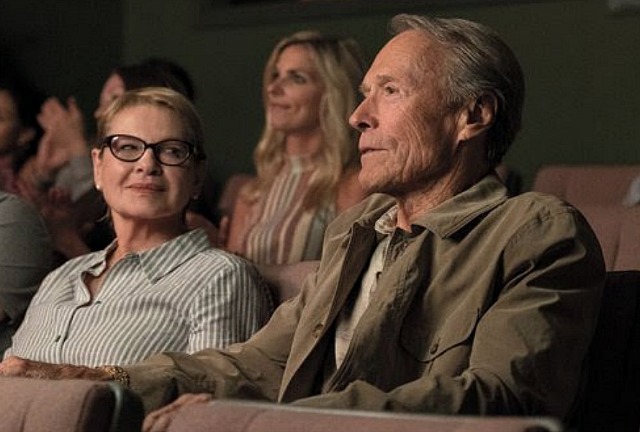
Stephen Farber Plunges The Knife
Killer Farber Quote #1: “Ashes In The Snow is a bit too somber and unrelentingly bleak to draw much of an audience beyond the festival circuit, but it does showcase a number of talented actors and filmmakers.”
Killer Farber Quote #2: “The film is heartfelt and often powerful, but sometimes too sluggish to carry maximum impact.”
Killer Farber Quote #3: “Ashes In The Snow [is] punishing rather than dramatically gripping. There is not enough variety in the scenes of torment to keep us fully engaged, and the pacing sometimes flags. It is admittedly a challenge to execute this kind of story of brutalization without leaving the audience feeling somewhat brutalized as well. The history is very much worth retelling, but the film might have benefited from a touch of poetry along with the misery.”


